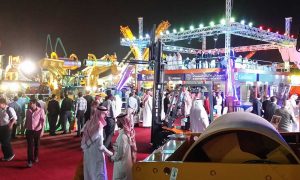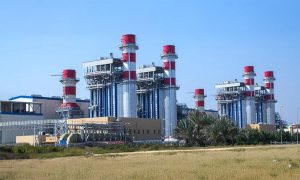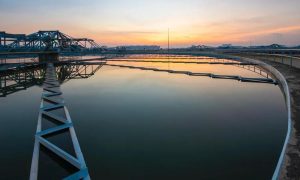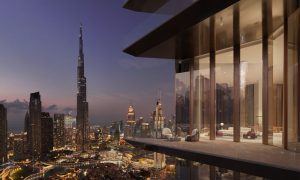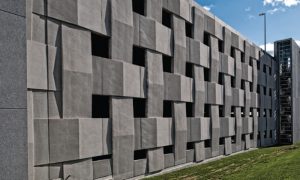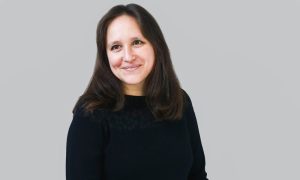Silver Service
Construction Machinery Middle East meets up with Paul Floyd to discuss an impressive year at Famco.

Construction Machinery Middle East meets up with Paul Floyd to discuss an impressive year at Famco.
By any definition, it’s been quite a year at Famco, the heavy equipment dealer arm of Al-Futtaim Group. It’s gone from being a name in the UAE market to becoming (the process is ongoing) one of the region’s most important construction equipment suppliers.
That’s not to say the previous 12 months were not impressive but in hindsight 2010 was a relatively modest year for the company as it built up its rental business and consolidated its presence in the UAE market as the exclusive dealer for a number of big name, small niche companies such as Yanmar, the Japan-based power generator company and Linde, the German materials handling equipment provider.
Meanwhile, its relationship with Volvo Construction Equipment, the more profitable progeny of the break up of the Volvo group, gave it extra clout, even providing it with the opportunity to introduce arguably the year’s best new truck for the region in the FMX and twin pipelayers the PL4608 and PL6411. It also led to one of the most exciting acquisitions by a local distributor since the downturn in Saudi Arabia. Famco starts 2012 as it ended 2011, on a high.
Cracking the Saudi Arabian market has become a priority for the construction industry in the region. And so it is for Famco. As 2011 was closing it announced that it had acquired Al-Rehab Equipment, a distributor that comes with five branches across The Kingdom and the capability to push Volvo from Dammam to Jeddah.
Famco wants to flex its muscles in The Kingdom taking what it has learned elsewhere about providing joined up sales and service to new customers and Paul Floyd, managing director at Famco, says his company thinks that it is offers something new to a market that has stagnated.
“We’re going in with the five branch network that we acquired,” he explains. “We intend to increase that to an 11 branch network over the next three years. And that network expansion is linked directly with our overall objective to double our market share in that three-year period.
“We’ve acquired three really nice pieces of real estate in the three main areas of Jeddah, Riyadh and Dammam,” he continues. “We’re planning immediately for expansion and improvements to those locations, but in some of the others we can offer a first-class service from much smaller centres – we will still have the systems and processes in place that allow us to provide technical assistance and parts. We will have the right people with the right competence in place.”
While Floyd is reluctant to enter into the specifics of the company’s growth strategy – understandable in the early stages of establishing its foothold in the Kingdom – he is willing to outlay Famco’s main objective.
“Our goal is to be a very clear number two in market share but at the same time number one in customer satisfaction. Everyone knows who the market leader is [Caterpillar] there’s no denying that. We know if we can replicate a lot of what we do here, and get a strong network, with the right parts and service organisation, we can be very successful.”
“Our goal is to be a very clear number two in market share but at the same time number one in customer satisfaction. Everyone knows who the market leader is [Caterpillar] there’s no denying that. We know if we can replicate a lot of what we do here, and get a strong network, with the right parts and service organisation, we can be very successful.”
Upper most in his mind is the challenge of providing the level of fluid customer service Famco has nurtured in the UAE into the large expanse of the Kingdom.
Although he says, time served in Saudi, including 11 years working on ‘the other side of the fence’, has taught him that the company must concentrate its efforts in Riyadh to win business.
“Regardless of where the construction is taking place a lot of decisions are still being made in Riyadh – so that’s an importance place in terms of presence,” he says. “From our point of view, the geography of Saudi is such that if you are going to do it properly you need to take it into account and make sure your network is in place. The day when someone has a project going on in the empty quarter and you are 300km away from there you have a problem.”
Companies that are entering the Saudi market are being encouraged to take on local workers as part of the wider Saudisation job creation programme. Floyd talks a lot about talent and he clearly views staff development as an integral element to the company’s regional aspirations.
The company Famco has acquired in Saudi is already a ‘green status’ company with the concerned Saudi Ministry and he says his team are determined “to keep it that way and invest more in local talent”.
“I think people are seeing that as we become more of a regional player, that Famco can be, from a career point of view, be quite attractive for people,” he says. “Even in Saudi Arabia, if you talk to companies in the Kingdom they tell you they have difficulties in attracting the right people. If you come and work for Famco you can come and work for a couple of years in the Kingdom, and after a few years you can move on but not leave the company. We think regionally we can build a strong talent pool.”
As part of the wider Al-Futtaim picture, Famco is building an academy for training and development of people, he says.
“We already do it, but we’re going to take it to another level. Localisation is a big part of our plan, especially in Saudi Arabia, we realise it is very important in all the Gulf Arab countries. We intend to recruit and develop local nationals and have them working in the local business.”
He says that viewing staff development in this will have very practical benefits in Saudi, especially in remote areas where the challenge to workers is as much mental as it is physical.
“A remote project down in the empty quarter is possibly a place someone would not want to be on a long-term basis. But if we can place them down there for six months we can rotate teams and let those people have a break from that harsh environment. We’ll get the consistency we want. We are working a lot on employee engagement as you can’t just take people for granted. If people are expected to live in a harsher environment, they can’t be expected to be placed there and forgotten.
“This is something we have got to tune into and a look at with a more high level approach. These are all career development opportunities; there may be a workshop management job somewhere and if someone has been able to do a year in a harsh environment and make a name for themselves then they can move on to a role in a new location.”
As with Volvo, Famco is using its OEM deals as leverage for expanding its presence in some of the Gulf’s most exciting markets. Yanmar Marine has allowed it to enter the specialist marine market while Linde has proven to be particularly useful in ramping up its efforts in both Oman and Qatar.
“In the smaller markets it is more difficult for a dealer to make the required investment. They (Yanmar) saw the economies of scale that we have, and the ability to hold stock and to support with parts and service. It made sense for us to take it on.”
He continues: “Linde on the materials handling side has been doing well for us too. We were appointed the dealer for Oman, a market we know a lot about, and Qatar two years ago, in addition to the UAE, and on the back of that we have established Famco Oman and Famco Qatar as part of our wider regional expansion plan.”
According to Floyd it is imperative even in a region with strong links like the Gulf to create a substantial physical presence in your target markets. Without it: “You can play but you’re never really going to succeed.”
He adds: “There’s an obvious cultural affinity with any gulf country but I think the big attraction for us is that although the products are already represented in those markets, I think the standards we have in FAMCO are possibly better than what you see in a lot of those markets.
“I’m not saying a lot of those dealers are bad, but I think on a general level if you look at the service levels in places like Oman, Qatar, and now Saudi Arabia – we think we can add a lot of value for fleet operators in those markets if we can replicate the standards we have achieved in the emirates.”
“I’m not saying a lot of those dealers are bad, but I think on a general level if you look at the service levels in places like Oman, Qatar, and now Saudi Arabia – we think we can add a lot of value for fleet operators in those markets if we can replicate the standards we have achieved in the emirates.”
Floyd says that when it comes to new products and markets he prefers to take a long term view. If required the company is prepared to wait.
“We go in and establish a scale that we think is right for the products we are going to offer. We study the market so we know the competitors; we see the opportunities that we will focus on. We will build gradually but, again, I think there is room in Qatar and Oman [both set-ups are start ups and 2012 will be their first full trading year] for a company like Famco to put quality products in the market with top quality support.
“We have, over the last two to three years been looking strategically at various markets. You can’t just walk into a market without a plan of action. That means the right partner with quality products.”
Floyd says that being an established name means Famco gets offered a lot of brands, most of which it turns down.
“We want to have premium brands but we need to know that they can work with us and partner with us. We create a joint business plan and go in with the goal to raise the standards in the market. But it’s not every day that the right mix of ingredients come along.”
In the case of Volvo and Saudi Arabia he says that Famco made the plunge after encouragement from Volvo CE – who was already using Al-Rehab: “It was a win-win and we’re delighted with the outcome.”
From the outside FAMCO appears to be an anomaly, it’s a UAE company that is actually doing rather well in a flat market. Floyd says that much of its momentum has come from its emphasis on service.
“We’ve had a really good year. Not only is revenue up but profitability is up too. The one thing we never lost sight of during the downturn was the concept of operating at the right standard and continuing to maximise the satisfaction level of the customer. You can never take the eye of the customer. You have to keep pushing in that direction.”
Floyd is keen to stress that Famco that any scars it may bear from the downturn have been turned into positives: “We got out of the downturn mode quickly – we wanted to deal with it efficiently then move on and take stock of the things we do well. Now to be successful in the post-downturn market, businesses need to re-invent themselves to some extent and take a fresh look at the marketplace. It is a very different place to what was in 2007or 2008, and you have to do things differently.”
A personal highlight was the winning of the hard to obtain silver certificate for service from Volvo.
Floyd puts this achievement in perspective: “there’s only two other companies in the international arena that have it” adding that winning the certificate took months of time and effort, including allowing Volvo to audit every facet of the company.
“It is always satisfying to get recognised like this. There are KPIs and good practices we should be following and not all distributors are. A lot of the complicated things in the business are the ones that have the real value, in other words moving the metal is less complicated than what comes afterwards. If you can get that right in terms of product support, parts distribution, technicians and network, you can maximise service and really add value. That’s our philosophy.”
As he views products and markets, he sees a successful business as mixture of some key ingredients to succeed: “You need the right talent in your organisation with the right amount of experience and you have to be able to plan and monitor your way forward. You need to have a vision of what you want the businesses to look like. Then you go can ahead in that manner.”


